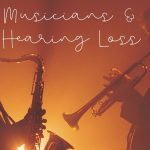Noise is not just a problem in cities – it can also be a problem in more suburban areas too, if only because of its startling contrast to the more sedate settings. From leaf blowers to noisy neighbors to barking dogs, peace and quiet is not as prevalent as it used to be in the suburbs.
The suburbs are now as noisy as the cities
Reporting in an article by the New York Times, Jeff Szymanski, an acoustical engineer, analyzed sound levels in cities and suburbs around the country and discovered that sound levels in the suburbs are now as loud as those in the cities.
He and a colleague collected 24-hour samples of background noise from a variety of neighborhoods over an eight-year period, monitoring noise in suburbs from Maryland and Miami to Las Vegas, and in a few towns and rural regions in between.
Their results, presented at a conference for the Acoustical Society of America, show that sound in the average suburb is seven decibels louder than previous estimates, putting it on par with the average noise level of a city.
The dangers of noise pollution
These increments in noise levels might not seem like much. After all, the sound levels are nowhere near 85 decibels, which is the level at which noise-induced hearing loss can occur.
But it’s still a danger. Noise pollution was identified by the World Health Organization (WHO) as an overlooked threat, which may trigger hearing loss, heart issues, cognitive impairment, stress and depression. Some specialists are going further: they think environmental noise exposure is already slowly harming our health.
Recent specialists at the American Cardiology College connected noise pollution to stress reactions in the body, leading the body to release the stress hormone cortisol. This in turn harms the blood vessels and increases cardiovascular issues like elevated blood pressure, heart attacks, heart attacks, heart disease and stroke.
It is for these reasons, as well as to maintain the quieter character of the suburbs, that it is important to deal with these noise issues as they surface in your neighborhood.
How deal with the noise pollution in your neighborhood
The first thing to remember with noise pollution is that you are not dealing with the source of the noise itself, you are dealing with your neighbors who control that source. This makes it trickier as you might be seen as infringing on an individual’s activities within the private sphere. To minimize the possibility of conflict, here is a step-by-step process on how to deal with these issues in your area.
- Talk to your neighbor in person: The most important thing to do is talk in person with the neighbour you believe to be making the noise. They may not even know that they are causing a problem. If their noise is bothering you for some reason, you should not be scared to raise it with them. Maybe you have a child who needs to sleep, and almost no one would want to disturb that.
- Suggest a plan and/or compromise: There may be a good reason for the noise from your neighbour. They might be in a band who need to rehearse or they could be renovating their kitchen. Try to talk about a compromise in these situations.
- Come up with possible solutions: You might also want to introduce solutions to the noise issues to your neighbours. The best time to do this is while you are making the complaint.
- Give your neighbors a warning: If you have tried to speak to your neighbour but they are still making noise, you may want to give them a final heads-up before contacting anybody with your complaint.
- Talk to your landlord, management company or HOA: It’s time to talk to someone higher up about this when warning doesn’t work. A list of particular instances, such as the dates and moments when the noise was particularly troubling, is a good idea to have with you.
- Contact the police: When nothing else operates, the noise complaint can always be sent to the local police department. This should be the absolute last resort, however.
Fit Hearing Audiology Network
You should contact a hearing specialist for a hearing assessment if you or someone in your family might have a hearing loss. They will assist you in finding the ideal hearing aid to understand others in background noise, like the ReSound LiNX or the Unitron Stride, which will help you get back to doing the things you love.






